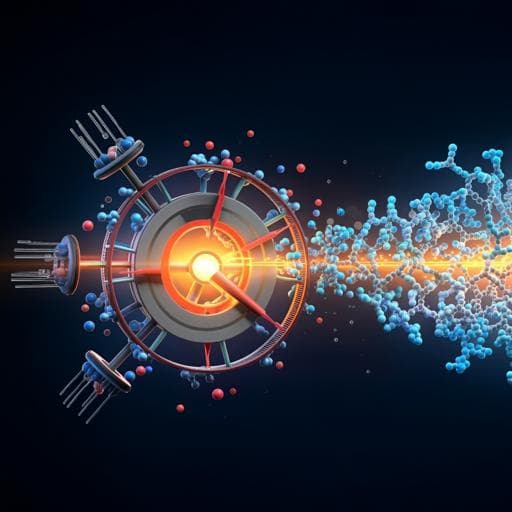
Chemistry
Impact of solvation on the photoisomerisation dynamics of a photon-only rotary molecular motor
M. Filatov, M. Paolino, et al.
Discover the intriguing effect of solvent environment on the quantum efficiency of a unique 2-stroke photon-only molecular rotary motor. This research, conducted by Michael Filatov, Marco Paolino, Danil Kaliakin, Massimo Olivucci, Elfi Kraka, and Seung Kyu Min, reveals how hydrogen bonding in methanol hinders performance, paving the way for innovative design strategies to enhance motor efficiency.
~3 min • Beginner • English
Related Publications
Explore these studies to deepen your understanding of the subject.







